The NY Daily News is the latest paper to get an excerpt from Jay-Z’s Decoded. Below Jay talks about the influence of his Father, New York and Hip Hop. Decoded is in stores today.
My father was crazy for detail. I get that from him. Even though we didn’t live together after I was nine, there are some things he instilled in me early that I never lost. He’d walk my cousin B-High and me through Times Square — this is when it was still known as Forty Deuce — and we’d people watch. Back then, Times Square was crazy grimy. Pimps, prostitutes, dealers, addicts, gangs, all the s— from the seventies that other people saw in blaxploitation flicks, Manhattan had in living color. Kids from Harlem and Hell’s Kitchen used Times Square as their backyard — they’d be out there deep, running in and out of karate flicks, breakdancing — but for Brooklyn kids, like me and B-High, midtown Manhattan might as well have been a plane ride away.
My father would take us to Lindy’s and we’d get these big-ass steak fries. We would sit in the restaurant looking out the window onto the streets, and play games that exercised our observational skills. Like my pops would make us guess a woman’s dress size. There was nothing he missed about a person. He was really good about taking in all the nonverbal clues people give you to their character, how to listen to the matrix of a conversation, to what a person doesn’t say.
For my pops it was just as important to take in places as people. He wanted me to know my own neighborhood inside out. When we’d go to visit my aunt and uncle and cousins my father would give me the responsibility of leading, even though I was the youngest. When I was walking with him, he always walked real fast (he said that way if someone’s following you, they’ll lose you) and he expected me to not only keep up with him but to remember the details of the things I was passing. I had to know which bodega sold laundry detergent and who only stocked candy and chips, which bodega was owned by Puerto Ricans and which one was run by Arabs, who taped pictures of themselves holding AKs to the Plexiglas where they kept the loose candy.
He was teaching me to be confident and aware of my surroundings. There’s no better survival skill you could teach a boy in the ghetto, and he did it demonstratively, not by sitting me down and saying, “Yo, always look around at where you are,” but by showing me. Without necessarily meaning to, he taught me how to be an artist.
That same kind of close observation is at the heart of rap. Great rappers from the earliest days distinguished themselves by looking closely at the world around them and describing it in a clever, artful way. And then they went further than just describing it. They started commenting on it in a critical way. Rap’s first great subjects were ego-tripping and partying, but before long it turned into a tool for social commentary.
It was kind of a natural move, really. The 1970s were a time when black art in general was being used as a tool for social change, whether it was in the poetry of people like the Last Poets or in the R&B of Marvin Gaye or Donny Hathaway or in movies like “Shaft.” And politics had a real cultural angle, too. The Black Panthers weren’t just about revolution and Marxism, they were also about changing style and language. Jesse Jackson recited poems like “I Am Somebody” to schoolchildren of my generation. Art and politics and culture were all mixed up together. So it was almost obligatory that any popular art include some kind of political message. Some early rap was explicitly political, like Afrika Bambaataa’s Zulu Nation movement. But other rappers played it safe and nonspecific:They’d throw in a line about peace, or supporting your brotherman, or staying in school, or whatever. It took a while before rappers as a whole really sharpened their commentary, but, again, it was hard not to — there was so much to comment about if your eyes were open to what was going on around you.
There was the general squalor of the ghetto, which got aired out in early songs like Run-DMC’s first hit, “It’s Like That,” or “The Message” by Melle Mel. But over time, rappers started really going in on specific issues. Crooked cops were attacked by groups like NWA. Drug dealers were targeted by KRS-One. Drug addicts were mocked by Brand Nubian. Ice Cube called out Uncle Toms. Groups like Poor Righteous Teachers denounced shady churches with bootleg preachers. Queen Latifah was pushing back against misogyny. Salt-N-Pepa were rallying around safe sex. Public Enemy recorded manifestoes on their albums addressing a dozen different issues. You could name practically any problem in the hood and there’d be a rap song for you.
The hip-hop generation never gets credit for it, but those songs changed things in the hood. They were political commentary, but they weren’t based on theory or books. They were based on reality, on close observation of the world we grew up in. The songs weren’t moralistic, but they created a stigma around certain kinds of behavior, just by describing them truthfully and with clarity. One of the things we corrected was the absent-father karma our fathers’ generation’s created. We made it some real bitch s— to bounce on your kids. Whether it was Ed O.G. & Da Bulldogs with “Be a Father to Your Child,” or Big mixing rage with double entendre (pop duke left ma duke, the f— took the back way), we as a generation made it shameful to not be there for your kids.
I’M TALKING BOUT REAL S—, THEM PEOPLE’S PLAYIN’
Artists of all kinds have a platform and, if they’re any good, have a clearer vision of what’s going on in the world around them. In my career I’ve never set out to make songs that function as public service announcements (not even the song “Public Service Announcement”) with a few exceptions, one of which is the song “Meet the Parents.” But in honoring the lesson of my father — to pay attention — and the lesson of hip hop — which is to tell the truth — I’ve been able to create my own kind of social commentary. Artists can have greater access to reality; they can see patterns and details and connections that other people, distracted by the blur of life, might miss. Just sharing that truth can be a very powerful thing.
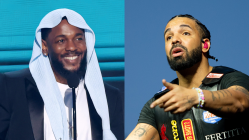
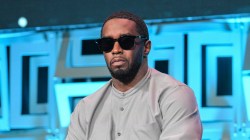
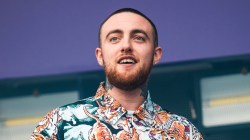
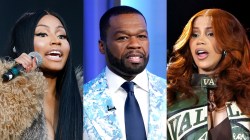
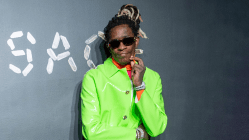
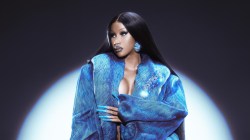
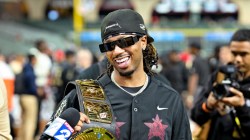
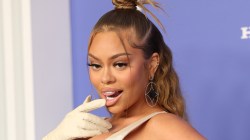
Jay-Z said…”There was the general squalor of the ghetto, which got aired out in early songs like Run-DMC’s first hit, “It’s Like That,” or “The Message” by Melle Mel. But over time, rappers started really going in on specific issues…. He also says ” The hip-hop generation never gets credit for it, but those songs changed things in the hood.”
Lets move to today…rappers like Wacka Flocka Flame, Gucci Mane and the rest of these so called artist talk about dumb shit all the time…from guns to hoes.
The rappers today can take credit for taking today’s hood mentality into the ignorance that is so in your face everyday.
Its is what it is…and that’s why people who grew up with an understanding of Raps Golden age are so down on the BS rap ish of today. These rappers took a great artform and turned it into a product that helps turn youth into dumb dumbs, where as artist from the past helped unify the community toward a common goal.
So sad that these artists actually understand that…but still make stoopid shit music for the people.
man yall old washed up niggas need to stop lying to urselfs about rap of the old days. nigga for every wacka flocka of today there was a kool g rap or nwa of that day. for every tribe called quest or whatever the fuck yall think is “real hip hop” there’s a talib kwali for today. shut the fuck up. if u want to hear nerd shit u start makin songs
seems like a pretty good read.
No doubt that rap music of the past had a “more meaningful message.” But let’s be honest and take a shot at the bottom line: NOTHING CHANGED in the ghettos and in the black community as a result of socially/politically conscience rap of the 80’s and 90’s.
So everyone hating on the music today, in that it “lacks a message” or is just about “guns and hos,” to be honest, the more sophisticated rap music had its chance. And there were no concrete improvements amongst the ghettos. Dealers didn’t stop dealing, shooters didn’t stop shooting, users didn’t stop using, etc…
Jay-Z is absolutely right when it comes to the messages of rappers of old, and how they were more in touch with real problems coming out of their surrounding communities, but at the end of the day it is simply ideas that never translate into positive action.
I agree…nothing much has changed and music alone will not make it change..however..I’d rather see a continuation of some kind of message instead of guns and hos.
You also have to agree…is it better to send a coherent message or this dumb shit that we hear today?
I disagree. People’s lives HAVE been changed, people from Jay-z’s and my generation. I know dudes personally who have been enlightened and TRANSFORMED by the lyrics and messages in 80’s Hip Hop. But Hip Hop is a lifestyle, it’s one that speaks LIFE. True, the ghetto still exists; but everyone still has choices. We could choose life…..or choose……well, you know the rest.